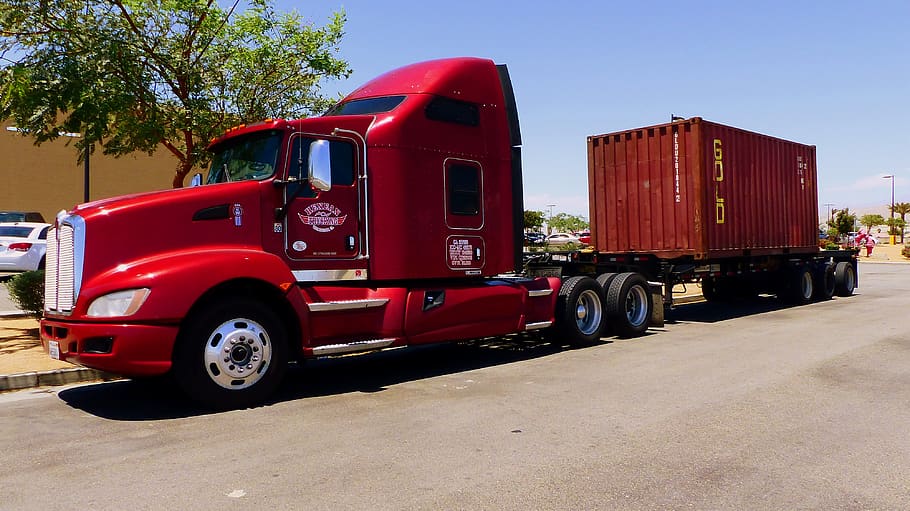The trucking industry plays a crucial role in transporting goods and driving economic growth. Within this vast industry, small trucking businesses face unique challenges and opportunities as they strive for success. In this article, we will explore strategies, best practices, and key considerations for small truck companies to thrive on the road to success.
Strategies for Success
A solid business plan serves as the foundation for success in any industry, including trucking. Small trucking businesses need to establish clear goals, define their target market, and develop a comprehensive plan to achieve their objectives. This includes identifying their competitive advantage, understanding customer needs, and positioning their services effectively in the market.

Building a strong customer base is crucial for small truck companies. Maintaining strong relationships with existing customers and establishing new partnerships can lead to repeat business and referrals. It is essential to prioritize customer satisfaction by providing reliable and efficient services, communicating effectively, and addressing any concerns promptly.
Effective financial management is critical for small trucking businesses. This includes budgeting, cash flow management, and tracking expenses to ensure profitability. Managing finances prudently also involves monitoring fuel costs, negotiating favorable contracts with suppliers and vendors, and optimizing expenses without compromising quality and safety.
Investing in reliable equipment and maintenance is vital for small trucking companies. Trucks are the lifeline of the business, and breakdowns can result in costly delays and disruptions. Regular maintenance, timely repairs, and keeping abreast of technological advancements in the trucking industry can help minimize downtime and ensure smooth operations.
Efficient operations and logistics are crucial for small truck companies. This includes optimizing routes, managing scheduling and dispatching, and leveraging technology solutions for operational efficiency. Implementing best practices for fleet management, including driver training, vehicle tracking, and performance monitoring, can help reduce costs, enhance productivity, and ensure timely deliveries.
Competing in the Trucking Industry
The trucking industry is highly competitive, and small trucking companies need to stay ahead of the competition. Understanding market dynamics, customer preferences, and industry trends can help small truck companies identify and leverage unique selling propositions. This could be specialized services, competitive pricing, outstanding customer service, or a combination of factors that set them apart from the competition.
Navigating regulations and compliance requirements is another challenge for small trucking businesses. Compliance with federal, state, and local regulations, such as hours of service (HOS) regulations, weight limits, and licensing requirements, is essential to avoid fines and penalties. Staying updated with changes in regulations and implementing effective compliance measures is crucial for success.
Adopting technology solutions is becoming increasingly important for small trucking businesses to stay competitive. Technology can help streamline operations, optimize routes, track vehicles and shipments, manage documentation and invoicing, and improve communication with customers and drivers. Embracing technology can enhance efficiency, accuracy, and visibility into operations, giving small trucking companies a competitive edge.
Investing in employee training and development is also critical for small truck companies. Having a skilled and knowledgeable workforce is key to delivering quality services, maintaining safety standards, and managing operations effectively. Providing ongoing training, certifications, and opportunities for career growth can improve employee morale, retention, and performance, ultimately contributing to the company’s success.
Growth and Expansion
As small trucking companies establish their presence in the market, they may consider growth and expansion opportunities. This could involve expanding into new markets, industries, or geographies, or diversifying their customer base. Before expanding, it is essential to conduct thorough market research, evaluate risks and costs, and develop a growth strategy that aligns with the company’s goals and capabilities.
Managing risks associated with growth is crucial for small trucking businesses. Expansion may entail increased costs, higher competition, and new operational challenges. Developing contingency plans to address potential risks, having a robust financial plan, and building strong relationships with partners and customers can help mitigate risks and ensure successful growth.
Exploring partnerships and collaborations can also be a strategic approach to expand the business. Teaming up with other businesses, such as logistics providers, freight brokers, or technology providers, can open up new opportunities and enhance the company’s capabilities. Collaborations can lead to shared resources, access to new markets, and synergies that can accelerate growth.
Another avenue for growth is through mergers and acquisitions (M&A). Small trucking companies can consider acquiring or merging with other businesses to expand their operations, gain market share, and diversify their service offerings. However, M&A transactions require careful planning, due diligence, and expert advice to ensure successful integration and realization of synergies.
Investing in marketing and branding efforts is crucial for small trucking companies to stand out in a competitive market. Establishing a strong brand presence, developing a professional website, engaging in social media marketing, and leveraging digital marketing strategies can help raise awareness, attract new customers, and build credibility in the industry.
Managing the Workforce
The workforce is a critical asset for small trucking companies, and effective workforce management is essential for success. Hiring and retaining skilled drivers, dispatchers, and support staff is crucial for ensuring smooth operations and meeting customer demands.
Developing a positive company culture that values employee satisfaction, recognition, and engagement is important for retaining top talent. This includes offering competitive compensation packages, providing opportunities for career advancement, and creating a safe and inclusive work environment. Employee retention strategies, such as training and development programs, performance incentives, and recognition programs, can help reduce turnover and maintain a skilled and motivated workforce.
Implementing safety protocols and training programs is a top priority for small trucking companies. Safety is paramount in the trucking industry, and adherence to safety regulations and best practices is crucial to minimize accidents and protect the company’s reputation. Regular safety training for drivers, maintaining well-maintained vehicles, and monitoring compliance with safety regulations can help ensure the safety of employees, cargo, and other road users.
Managing Relationships with Customers and Partners
Building and maintaining strong relationships with customers and partners is vital for the success of small trucking companies. Customer satisfaction and loyalty are critical for repeat business and positive referrals. Regular communication, prompt response to inquiries and concerns, and delivering reliable and efficient services can help build long-term relationships with customers.
Cultivating strategic partnerships with key stakeholders, such as suppliers, vendors, and other industry players, can also contribute to the success of small trucking companies. Building trust, open communication, and mutually beneficial collaborations can lead to cost savings, access to new opportunities, and shared resources that can enhance the company’s competitive advantage.
Managing the company’s reputation is also crucial for small trucking businesses. Maintaining a positive reputation in the market through excellent service delivery, transparent communication, and prompt resolution of customer complaints can help build trust and credibility. Monitoring and managing online reviews, testimonials, and feedback from customers can provide valuable insights and help improve the company’s reputation.
Looking to the Future
The trucking industry continues to evolve, with advancements in technology, changes in regulations, and shifting market dynamics. Small trucking companies need to stay agile, adaptable, and forward-thinking to thrive in the future.
Staying updated with industry trends, innovations, and regulatory changes is crucial for small trucking businesses to remain competitive. Investing in technology solutions, such as fleet management software, GPS tracking, and electronic logging devices (ELDs), can help optimize operations, improve efficiency, and comply with changing regulations.
Diversifying service offerings and exploring new markets or industries can also be a strategic approach to future-proof the business. Identifying emerging opportunities, understanding customer needs, and adapting the business model accordingly can help small trucking companies stay relevant in a rapidly changing landscape.
Additionally, focusing on sustainability and environmental initiatives can be a proactive strategy for the future. As concerns about climate change and environmental impact increase, businesses that prioritize sustainability can have a competitive advantage. Small trucking companies can explore options such as using alternative fuels, optimizing routes to reduce fuel consumption, and investing in eco-friendly technologies to reduce their carbon footprint and align with changing consumer preferences.
Investing in professional development and continuous learning is also essential for the long-term success of small trucking companies. Keeping employees trained and up-to-date with industry knowledge, regulations, and best practices can improve overall operations and efficiency. This includes providing opportunities for skill development, certifications, and industry-specific training programs.
Finally, having a contingency plan for unexpected challenges, such as economic downturns, disruptions in the supply chain, or changes in regulations, is crucial. Building a financial buffer, diversifying customer base, and having a risk management strategy in place can help small trucking companies navigate uncertainties and sustain their operations in the face of unexpected challenges.
Conclusion
Small trucking companies face numerous challenges, but with strategic planning, effective workforce management, strong customer and partner relationships, and a proactive approach to the future, they can achieve sustainable growth and success. It is crucial for small trucking businesses to continuously adapt to changing market dynamics, embrace technological advancements, prioritize safety and sustainability, and invest in their employees and relationships to thrive in a competitive industry. With careful planning, innovation, and a customer-centric approach, small trucking companies can position themselves for long-term success and navigate challenges along the way.












